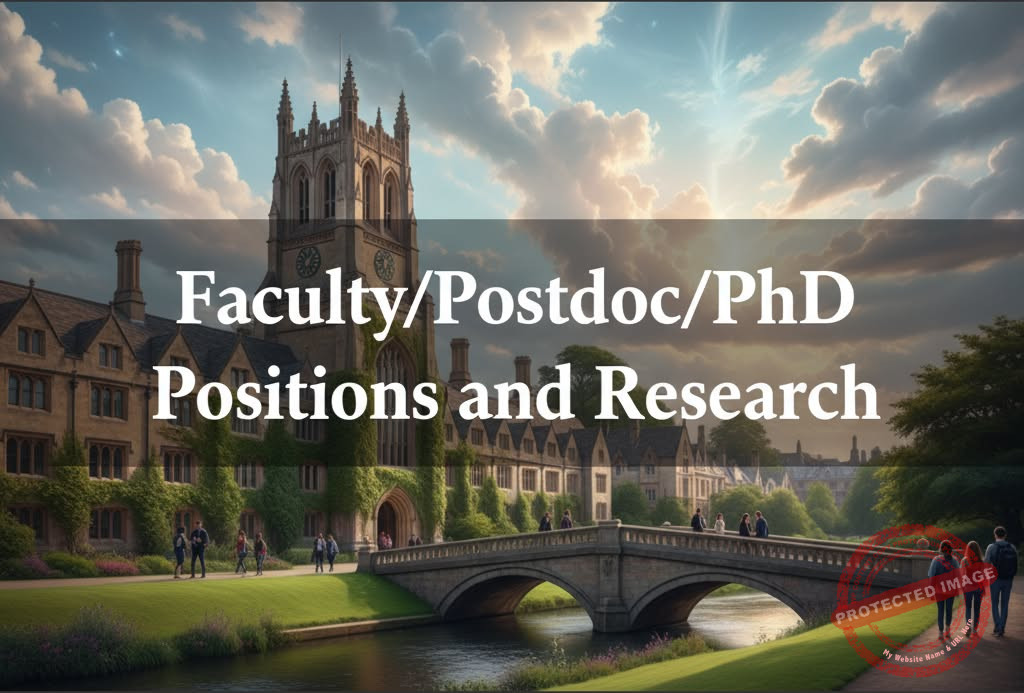Shenzhen University Microsystem and Semiconductor Technology Team recruits assistant professors/associate professors, researchers, postdoctoral fellows and Ph.D.
| Specific work location: |
| Shenzhen University Yuehai Campus, Yuehai Subdistrict, Nanshan District, Shenzhen |
| Salary: |
| Current salary standards of Shenzhen University |
1. Shenzhen University’s multiple research groups jointly recruit assistant professors/associate professors, researchers/associate researchers, postdoctoral fellows and doctoral students
The salary packages are as follows:
The salary packages for pre-hired and long-term teachers are as follows:
1. Annual salary of 380,000 to 700,000 yuan/year; particularly outstanding applicants can be directly selected for the school’s “3+1 Talent Project” project and enjoy a special work remuneration of 150,000 to 200,000 yuan/year;
2. Enjoy the school’s young teachers’ scientific research start-up special funds of 100,000 to 300,000 yuan;
3. Those who meet the conditions can enjoy Shenzhen’s high-level talent reward subsidies and newly introduced high-end talent scientific research start-up funds;
4. Housing policy: You can apply to rent a turnover house on campus;
5. Education facilities: Shenzhen University’s affiliated education group has kindergartens, primary schools, and middle schools, providing a full system of high-quality basic education services for the children of faculty and staff;
6. Medical care: Shenzhen University General Hospital provides high-quality medical services for faculty and staff.
Researcher/Associate Researcher:
~400,000+ yuan/year–depending on personal situation
Postdoctoral annual salary ~350,000+ yuan/year (top 200 graduates in the world overseas + 300,000 tax exemption);
annual salary in some directions can be 400,000-500,000+ yuan/year (top 200 graduates in the world overseas + 300,000 tax exemption);
particularly outstanding can be discussed on a case-by-case basis;
doctoral student treatment refers to Shenzhen University standards;
· Research Direction 1: Optical Engineering
Basic background:
1) Optics or
2) Optical systems or
3) Lasers 4)
or related directions/with relevant foundations
· Research Direction 2: Quantum Information (experimental or theoretical)
Basic background:
1) Quantum Information Theory or
2) Quantum Information Experiment or
3) Optical background
4) or related directions/with relevant foundations
· Research Direction 3: Semiconductor Lasers;
Basic background:
1) Semiconductor devices or materials
2) or related directions/with relevant foundations
· Research Direction 4: Semiconductor Electronics/Optoelectronic Devices;
Basic background:
1) III-V semiconductor devices or materials
2) Integrated optics or
3) MEMS related
4) Or related directions/have relevant foundation
· Research Direction 5: Interaction between Light and Matter (theory and experiment);
Basic background:
1) Metamaterial/Photonic Crystal
2) Electromagnetic Artificial Microstructure
3) Or related directions/have relevant foundation
· Research Direction 6: Bioengineering;
Basic background:
1) Bioengineering
2) Microfluidics
3) Cardiovascular related research
4) Or related directions/have relevant foundation
· Research Direction 7: Optical Measurement (Range Measurement, etc.)
Basic background:
1) Optical Engineering or
2) Laser or
3) Have relevant foundation
· Research Direction 8: 3D Perception (Algorithm, Mathematics and Software)
Basic background:
1) Mathematics (Applied Mathematics or Image Algorithm) or
2) Computer (Image Related) or
3) AI Algorithm (SLAM, DNN, etc.)
4) Have relevant foundation
· Research Direction 9: High-speed Optoelectronic Devices and Circuits;
Basic background:
1) Circuit System
2) High-speed Optoelectronic Devices
3) Or related direction/have related foundation
Advantages: The research topic has both industrial and academic significance and advancement, and the research is mainly completed within the school (the research environment and level are guaranteed). After leaving the station, you can choose academia or enterprise, which is flexible.
2. Research team and collaborators
Team research direction: Shenzhen University “Microsystem & Semiconductor Technology Lab”, the research covers the foundation and application of microsystems and electronic/photoelectronic devices, focuses on scientific research results with significant academic influence, and is committed to developing industry-leading key technologies.
Team composition: All are from top domestic and foreign universities, with deep and extensive scientific research background; the research team is highly international, diversified, energetic and passionate.
· Team leader (microsystem, photonics/electronics): academic leader, obtained a doctorate degree from the Massachusetts Institute of Technology, a distinguished professor, and published articles in top journals such as Nature sub-journals; as a PI, he has successfully applied for multiple foreign funds and has the experience and foundation to independently operate scientific research projects; he has a deep industrial background (involving electronics, medical, finance and energy fields), a deep understanding of the actual needs of the industry, and promotes a virtuous cycle of industry, academia and research.
· Collaborative team member (Quantum Theory): Shenzhen “Overseas High-level Talent”, with overseas study experience.
· Collaborative team member (Quantum/Topology): Graduated from Tsinghua University, with overseas study experience.
· Collaborative team member (Optical/Electromagnetic Theory): Graduated from Tsinghua University with bachelor’s, master’s and doctoral degrees, Shenzhen “Overseas High-level Talent”.
· Collaborative tutor (Electronics and Quantum Information): Obtained a Ph.D. from Stanford University, USA, and will join the laboratory soon. Mainly engaged in research in the fields of electronics and quantum information.
· Collaborative team member (Bioengineering): Obtained a Ph.D. from the University of Michigan, USA, and Shenzhen “Overseas High-level Talent”. Mainly engaged in research in the fields of microfluidics and medical testing. Has many years of experience in cooperation with hospitals and understands clinical and medical testing needs.
· Collaborative team member (Flexible Electronics/Nanotechnology): Shenzhen “Overseas High-level Talent”, with overseas study experience.
· Collaborative expert (Machine Vision): Obtained a Ph.D. from RWTH Aachen University, Germany, Shenzhen “Overseas High-level Talent”, formerly a senior R&D engineer for a Fortune 500 company, with more than ten years of experience in image processing and advanced manufacturing.
· Collaborative expert (Quantum Electronics): Obtained a Ph.D. from California Institute of Technology, Shenzhen “Overseas High-level Talent”.
· Collaborative member (Quantitative Finance): Obtained a Ph.D. from Massachusetts Institute of Technology, with more than ten years of experience in the world’s top investment banks, Shenzhen “Overseas High-level Talent”.
· Collaborative member (Integrated Optics): Obtained a Ph.D. in Hong Kong, Shenzhen “Overseas High-level Talent”.
Team advantages:
1. The disciplines cover a wide range, and the research projects provide rich opportunities for interdisciplinary research; researchers can quickly grow into compound talents (electronics, computers, life sciences, medicine, etc.) that are urgently needed in academic research and industrial markets;
2. The equipment configuration is internationally leading and the resources are extensive;
3. The research projects have broad application prospects, and researchers will have the opportunity to participate in the industrialization of technology and receive corresponding incentives;
4. The team has extensive international resources, and those who perform well during the term of employment can be recommended to study at well-known foreign universities;
5. The researchers who have performed well during the term of employment and meet the entry requirements for teaching positions of the school can apply for teaching positions according to the pre-employment-long-term teacher appointment procedure, and enjoy priority recruitment qualifications under the same conditions;
6. The team has carried out extensive cooperation with many universities and research institutes at home and abroad, and the researchers who have been hired will have the opportunity to participate in it. Postdoctoral students with outstanding achievements will have the opportunity to be jointly recommended by multiple places when applying for teaching positions;
7. The team works closely with the industry and can provide a variety of exit options for the researchers who have been hired.
Regional advantages:
The Guangdong-Hong Kong-Macao Greater Bay Area (GBA) is a major strategic deployment in the national development blueprint. Its vast territory, rapid economic growth and interconnected market provide financial, information, personnel and hardware advantages for scientific research and entrepreneurs. Shenzhen is one of the fastest-growing cities in the world and the most economically developed cities in China (GDP exceeded 2.4 trillion yuan in 2018, surpassing Hong Kong, China and ranking among the top five in Asia). Shenzhen is highly internationalized, with about 2/3 of the world’s top 500 companies settled here. Shenzhen has established a new industrial structure based on its high-tech and advanced manufacturing industries, and has simultaneously accelerated the construction of a new mechanism for talent-driven development, with talent agglomeration and fission effects continuously amplified. Shenzhen University has currently ranked among the fastest-improving universities in the world, forming discipline clusters such as optoelectronic technology and materials disciplines, and the total increase in academicians of the two academies ranks first in the country (top 30, 2017). Optical engineering ranks high in the country and is a dominant discipline of Shenzhen University. There are more than 130 listed companies around Shenzhen University, including Tencent, Han’s Laser, and Innolux. Researchers will have more development opportunities and favorable treatment here than in other colleges.
III. Research Directions of the Team
1. Research on optics/devices/systems in artificial intelligence;
2. Electronic/optoelectronic devices and systems related to the next generation of optical communications;
3. Semiconductor electronic/optoelectronic devices (display, MEMS, etc.);
4. Quantum electronics (theory and experiment);
5. Research/application of microsystems/electronic/optoelectronic devices and systems in medicine;
6. Interaction between light and matter (theory and experiment);
7. Quantitative finance/physical finance based on theoretical models;
8. Mathematical physics problems in oil and gas exploration;
V. Applicants please provide the following materials
1. Personal resume;
2. Copies of academic qualifications, degree certificates, and representative papers (one PDF file);
3. Other materials that reflect scientific research capabilities.
VI. Application Procedure
1. Send application materials to the designated email address;
2. Applicants who meet the requirements will be interviewed on a preferential basis. During the interview, applicants can learn about the research situation of the research team;
3. After the interview, the school will approve the application and then notify whether it is approved. The employer will keep the application materials submitted by the applicant confidential.
VII. Contact information
Please send the materials to: recruiting@szu.edu.cn





 Serving
Serving